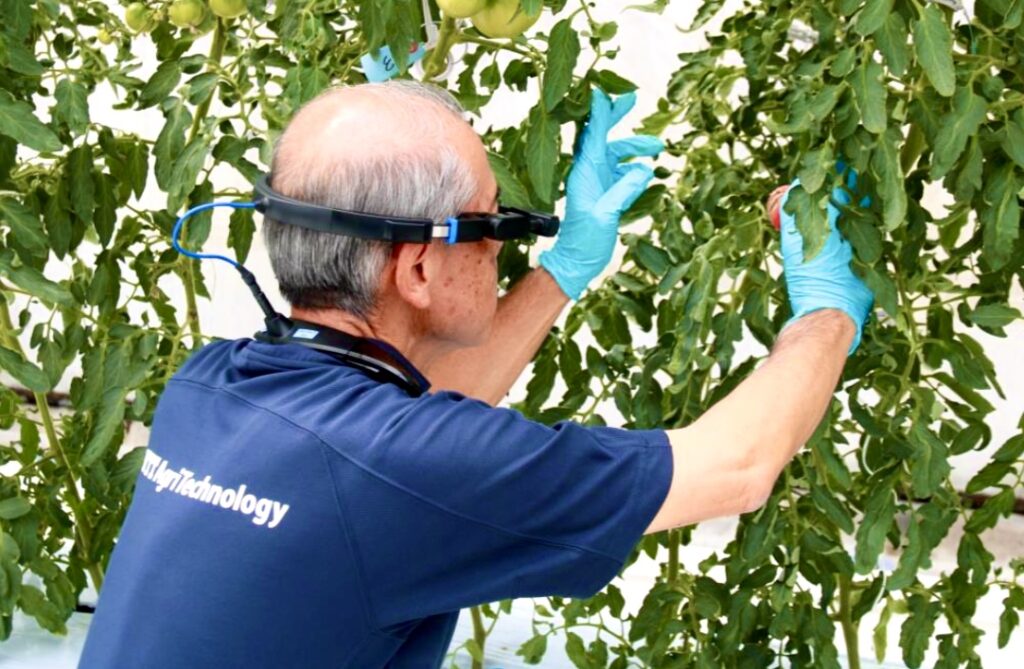
- ARAB NEWS
- 05 Jul 2025

TOKYO: Farming in Japan is facing a potential crisis. Space for agricultural land is limited, the farming workforce is aging—the average age is now 70—and climate change is affecting the growing process. The answer for high-tech Japan is to throw more technology at the problem.
In Chofu City, in west Tokyo, the 5G-driven NTTe-City Labo high-tech greenhouse run by NTT Agritechnology and supported by the Tokyo Metropolitan Government has become a model for manpower-efficient farming.
An array of 4K cameras operated by a supervisor wearing smart glasses keep watch over 350 tomato plants while a computer optimizes temperature, humidity, luminosity, soil water content, and more. The operator can relay high-resolution images to an expert in Tachikawa 20 km away, and receive real-time advice via a remote connection.
Students at Tokyo Metropolitan Engei High School are learning new ways of sustainable agriculture thanks to the Internet of Things. Sensors located next to crops provide data visualized in classrooms on tablets, helping students understand optimal conditions for managing crops. The data is managed via a cloud-based service called “Midori Cloud,” (or “Green Cloud”).
In this way, Tokyo is hoping to develop next-generation solutions to issues facing farming in Japan, with predictions suggesting that two-thirds of the world’s population will be living in cities by 2050.
“There is a shortage of experienced farmers as well as experts who can train the next generation,” says KOBAYASHI Hirotaka, Senior Vice President of NTT Agritechnology. “This is where data-driven agriculture comes in.”
OOISHI Kanako, Associate Manager of NTT Agritechnology’s New Business Development Headquarters, says a greenhouse operator, with no prior experience of agriculture, could tend to 350 tomato plants without putting in a seven-day working week.
“The job can be done within a five-day week,” she explains. “Meanwhile, our tests show both yield and sugar content exceeded expectations.” Remote work also eliminates travel time for instructors, further boosting efficiency.
A biogas plant uses plant waste and kitchen waste from schools to power the greenhouse, thus creating a closed-loop bio-system. Getting the staff to operate such systems is the key. It is important to attract young people to the field and teach them how to apply these methods.
“Smart farming enables us to attract them to agriculture and makes it easier to enter the field without experience,” Enge High School Principal NAMIKAWA Naoto says. “The younger generation tends to be more interested in the environment.”
Full commercialization of these technologies is still some way off, but as the roll-out of 5G continues across Japan and with government subsidies plugged in, the expansion of smart farms is expected to progress quickly soon.